傳薪創新 History

沿革
1978年,聖嚴法師應教育耆宿張其昀之聘,以國際知名佛教學者身份擔任中華學術院佛學研究所所長。79年起積極籌備培育人才工作;81年起招收研究生,修業三年,課程以佛學專題,以及梵、巴、藏語文為主,另側重英、日語之應用教學,以培植國際弘法人才為目標。
但因緣變化,1985年,中國文化學院改制,中華學術院佛學研究所停止招生;聖嚴法師遂另創中華佛學研究所於北投,自任所長。之後於1992年由方甯書教授繼任所長;1996年李志夫教授接任,至2006年12月止。其後,李教授申請榮退,由果肇法師代理所長一年整。2007年12月26日則由果鏡法師接任所長職。
2001年,位於金山的法鼓山世界佛教教育園區第一期工程完工,中華佛學研究所遷入,法鼓山僧團也新創僧伽大學佛學院,法鼓山「大學院教育」至此規模初具,步上嶄新里程。
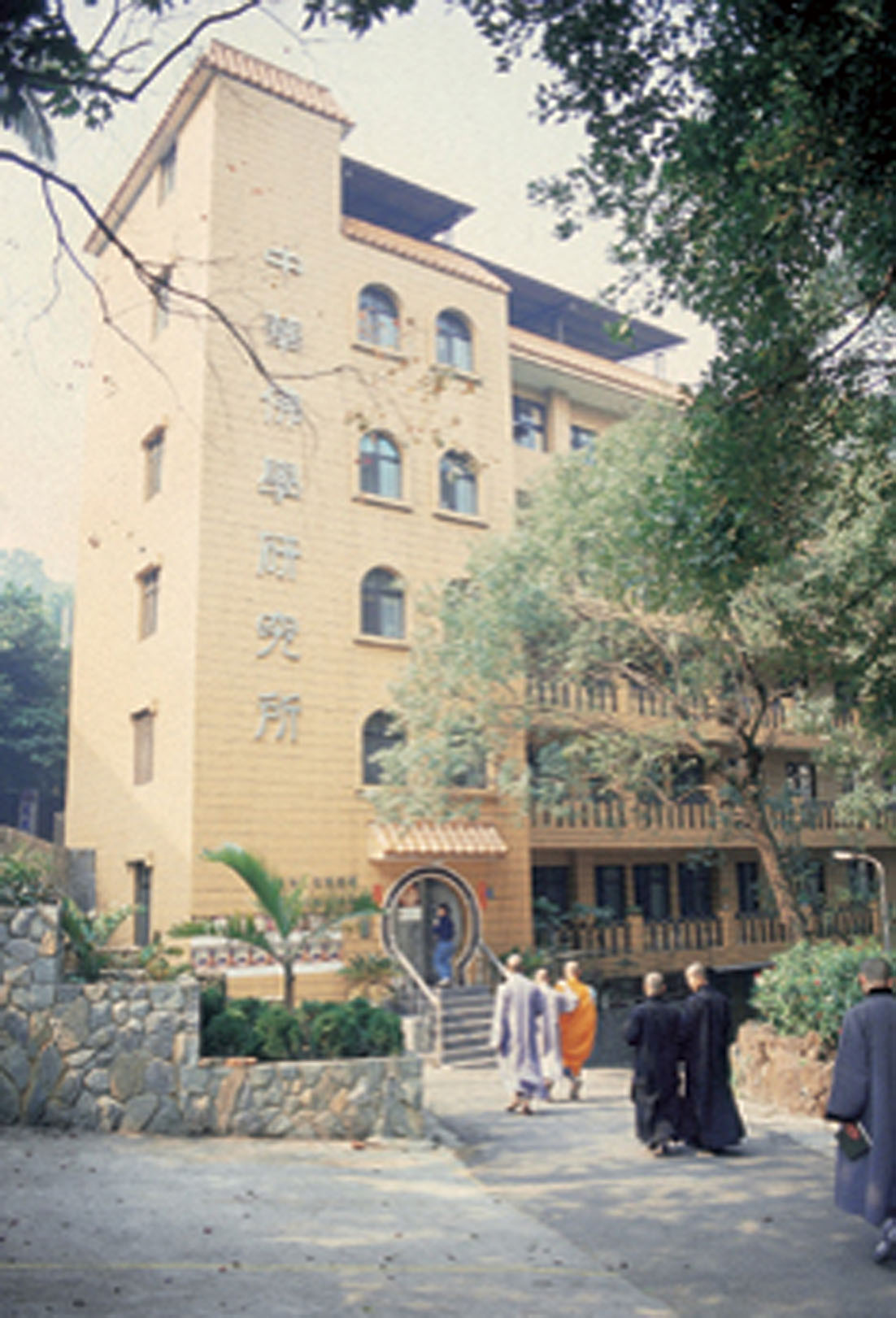
佛教高等教育的搖籃-中華佛學研究所。
The CHIBS campus in Beitou.
中華佛學研究所自1990年舉辦國際佛學會議迄2006年止,已辦理五屆「中華國際佛學會議」,並經常與國內外、大陸等各知名大學及佛學院所聯合辦理佛學會議、研討會及進行學術交流等。
國際交流方面,與多所國際知名學府締結姊妹關係,進行學生、出版物之交換與研究人員之互訪。此包括日本佛教大學、立正大學、駒澤大學、花園大學、龍谷大學;美國密西根大學、維吉尼亞大學;泰國法身中心和中國大陸的南京大學、中山大學、山東大學、中國人民大學、塔里木大學;俄羅斯聖彼得堡大學;澳洲雪梨大學等,皆有密切往來。
佛學研究所前後招生二十五屆,共有237名畢結業生(若含歷年選修、選課人數則有300餘位),至本年止已有113位完成畢業論文。在國內乃至出國到日本、美國、英國、德國、澳洲、印度等地繼續深造者,已有15位得到博士學位,陸續在各大學及佛學院所任教;尚在國內外攻讀博士學位者有6位。其餘任職國內教育、文化與宗教單位者也為各方所借重。
佛研所自2005年起,向教育部申請籌備「法鼓佛教研修學院」,更積極朝資訊化與國際化發展。本所近三十年來一直朝向此目標努力,已是國際知名的佛學研究學府。
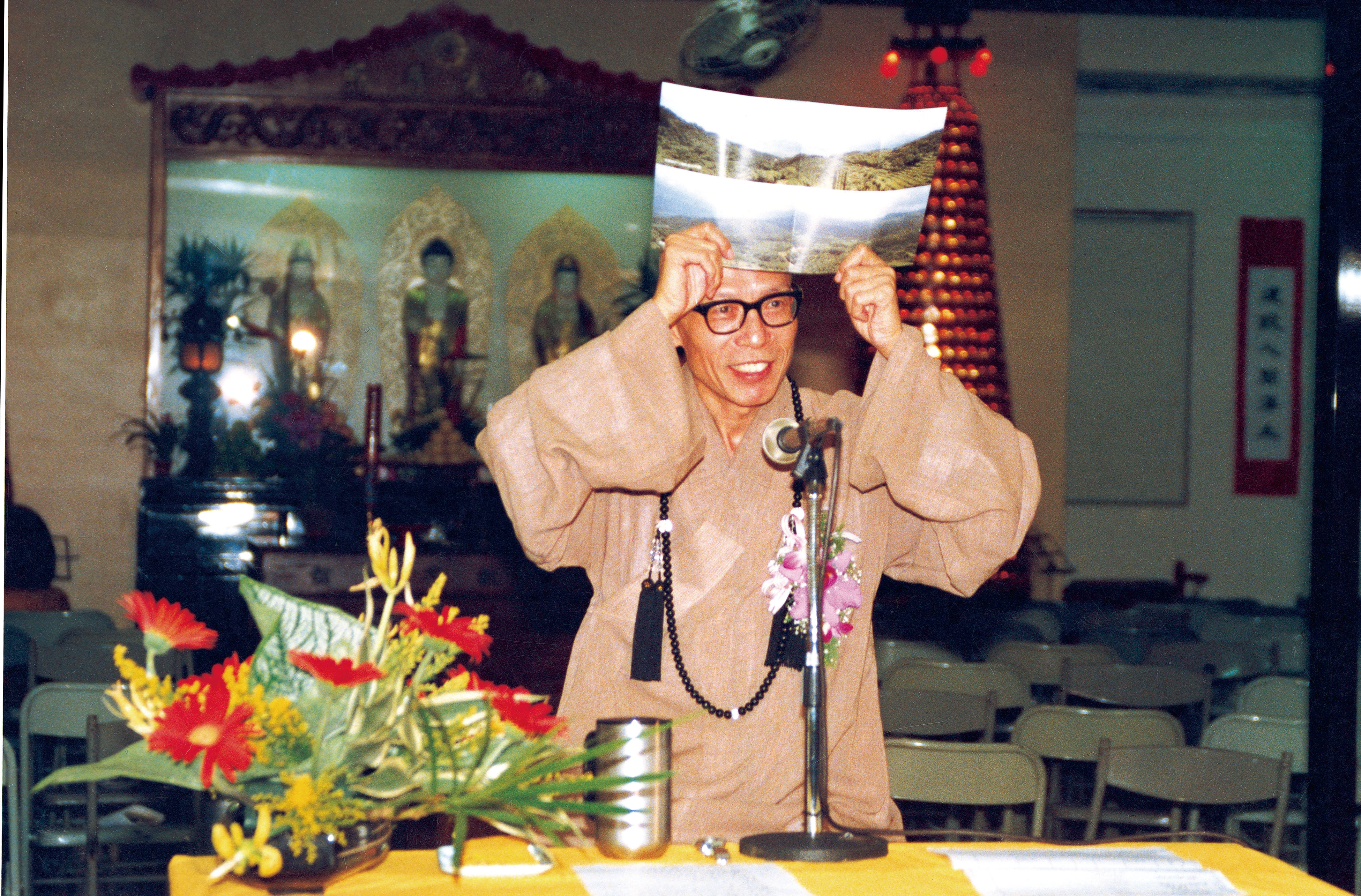
向大眾宣布找到法鼓山。
A vision is coming true in DDM, 1989.
2007年4月「法鼓佛教研修學院」獲准設立,5月開始招收第一屆研究生,中華佛學研究所培育人才的工作,正式交由「法鼓佛教研修學院」接手,中華佛研所則持續學術研究與出版交流的任務。特別是創辦人 聖嚴師父2009年2月捨報後,承繼師父一心繫念的「漢傳佛教」研究之推動與提倡,將是本所下一階段的重點工作。
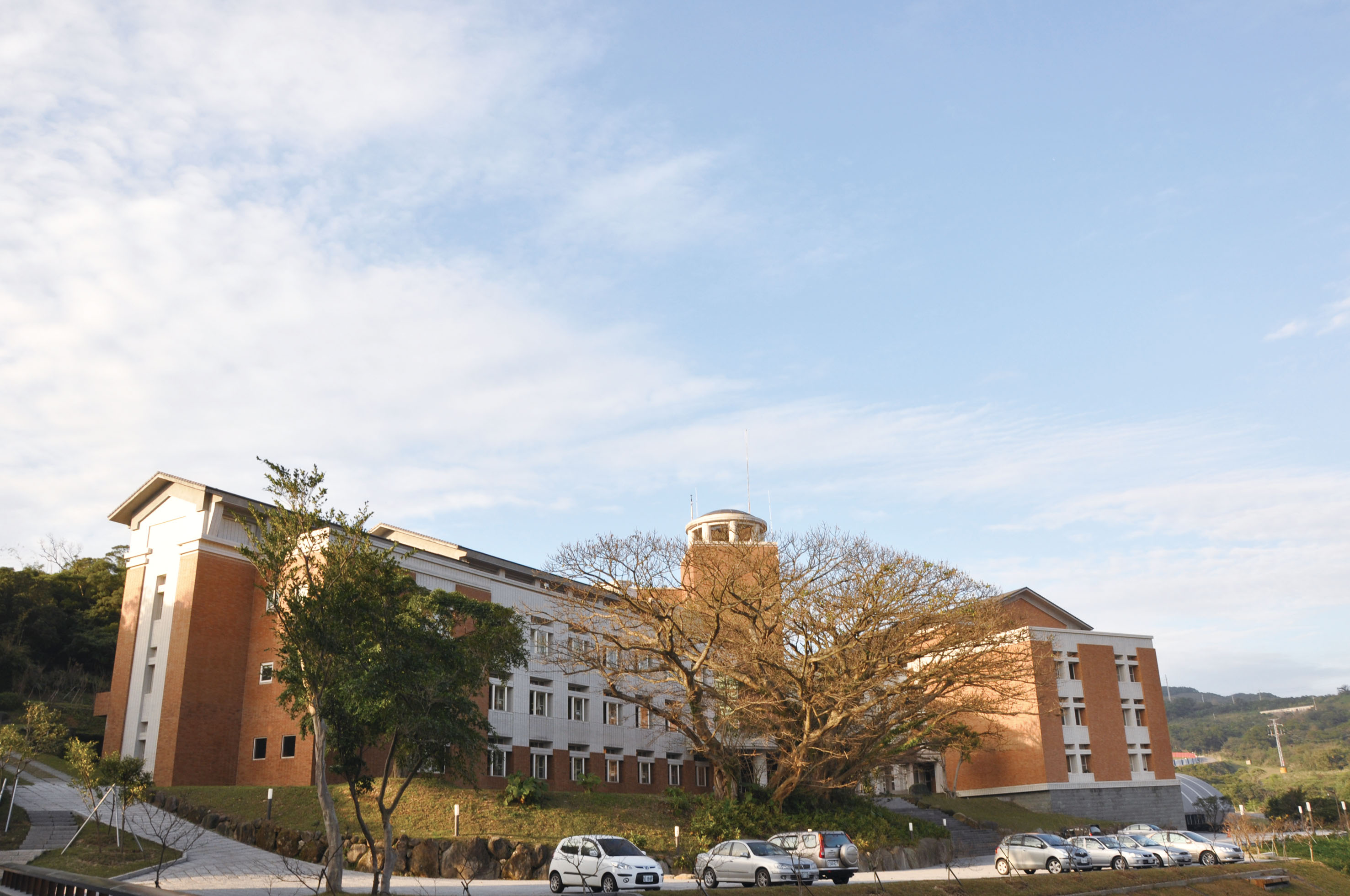
漢藏滙流與資訊化成果
2001年起,法鼓山中華佛學研究所,受蒙藏委員會之託,承辦「漢藏佛教文化交流研究班」,首開「漢、藏僧侶同修」先例,建置漢、藏佛教與文化交流平台,希望透過學習與互動,加強彼此文化與價值的理解,使來此學習的西藏僧侶,將來能用中文弘揚藏傳佛教,增進兩地人民的情誼。
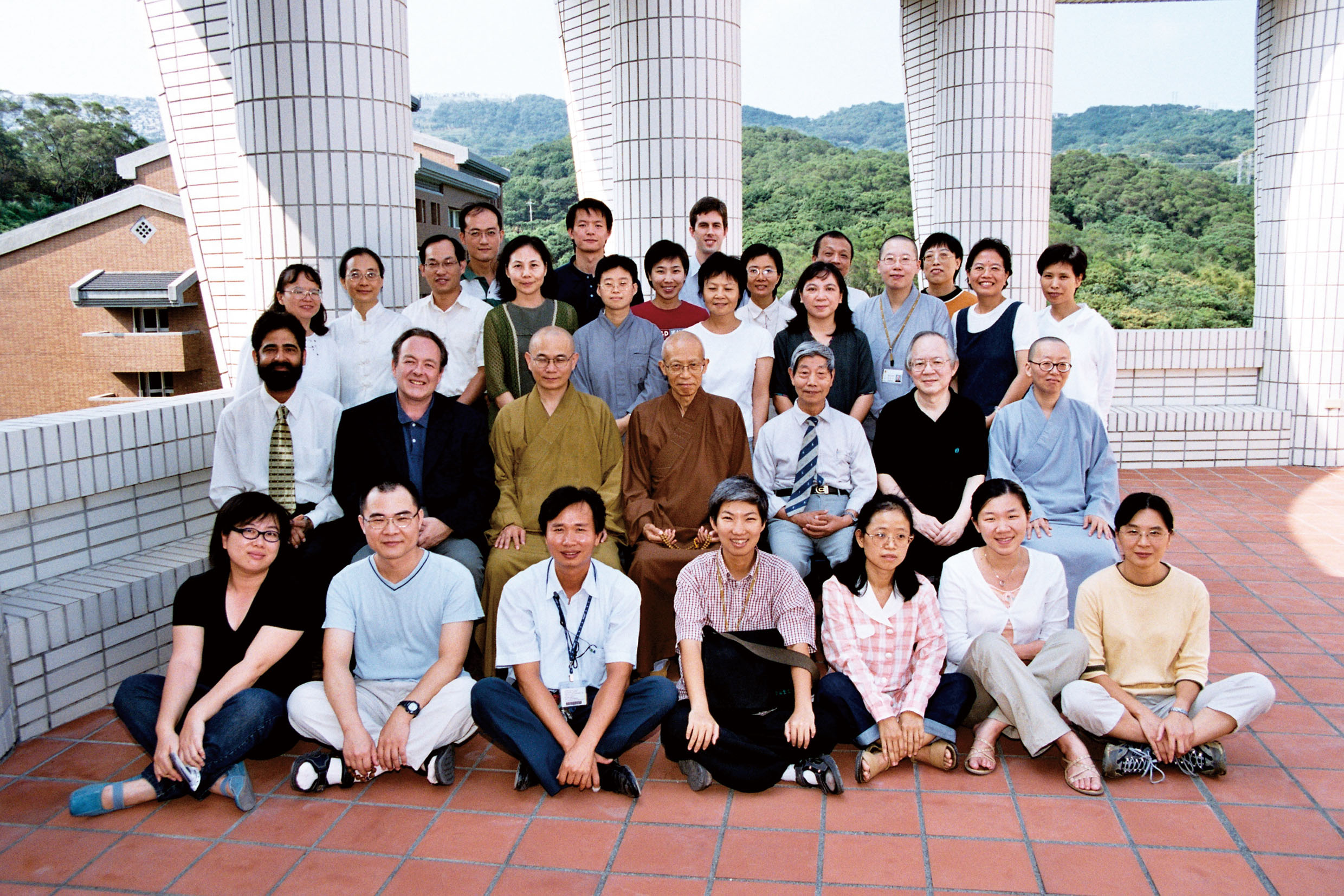
積極培養佛教高等教育人才的全體教職。
Faculty and Staff, 2003.
2004年9月至2007年6月前後三年,進一步以培訓翻譯人才作規畫,成立「漢藏佛教文化交流翻譯研究班」,由蒙藏委員會、台灣西藏交流基金會與本所共同成就此合作計畫,更落實培育漢藏佛典對譯人才。
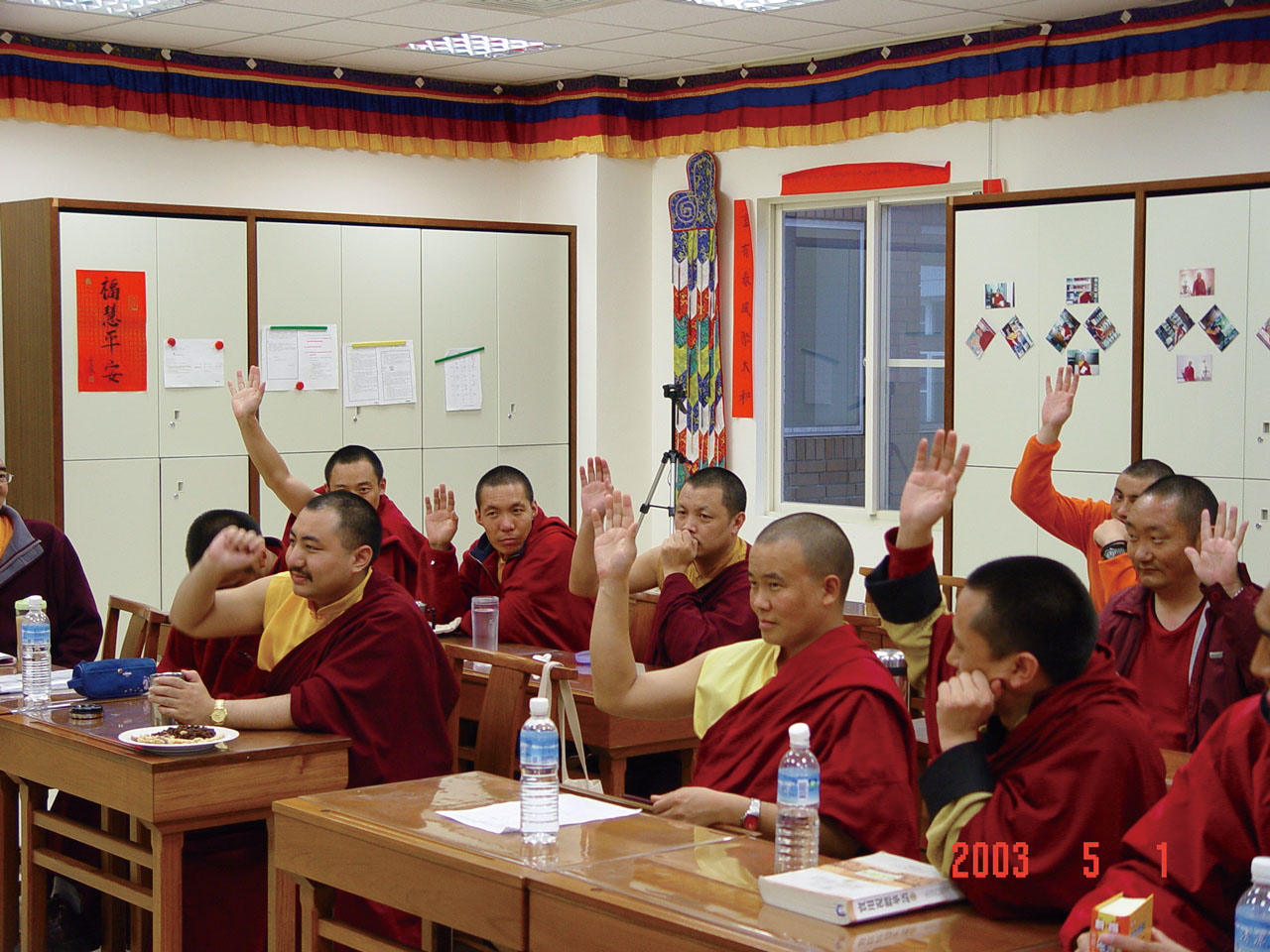
無論是專題演講或報告,學僧們的參與度都很高。
Lamas in a language class.
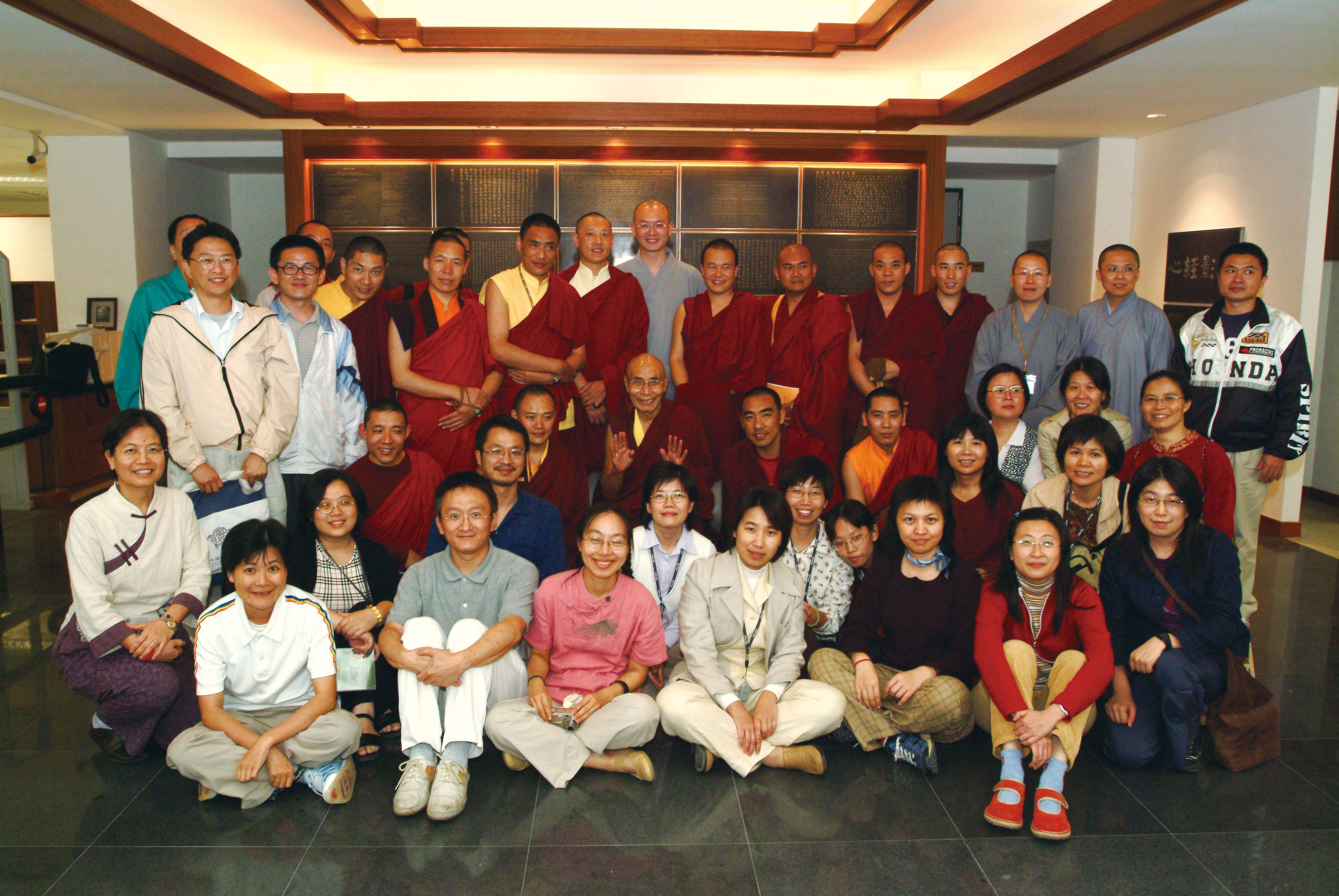
漢藏大融合。
Lamas and their tutors.
此外,中華佛學研究所於1998年3月成立「佛學網路資訊室」(簡稱網資室),其主要工作內容及目標為:
1. 中華電子佛典─藏經電子化
2. 國際佛學資料庫的建制與應用
3. 佛研所全球資訊網頁之架設
4. 佛學研究資訊化之開展與推廣
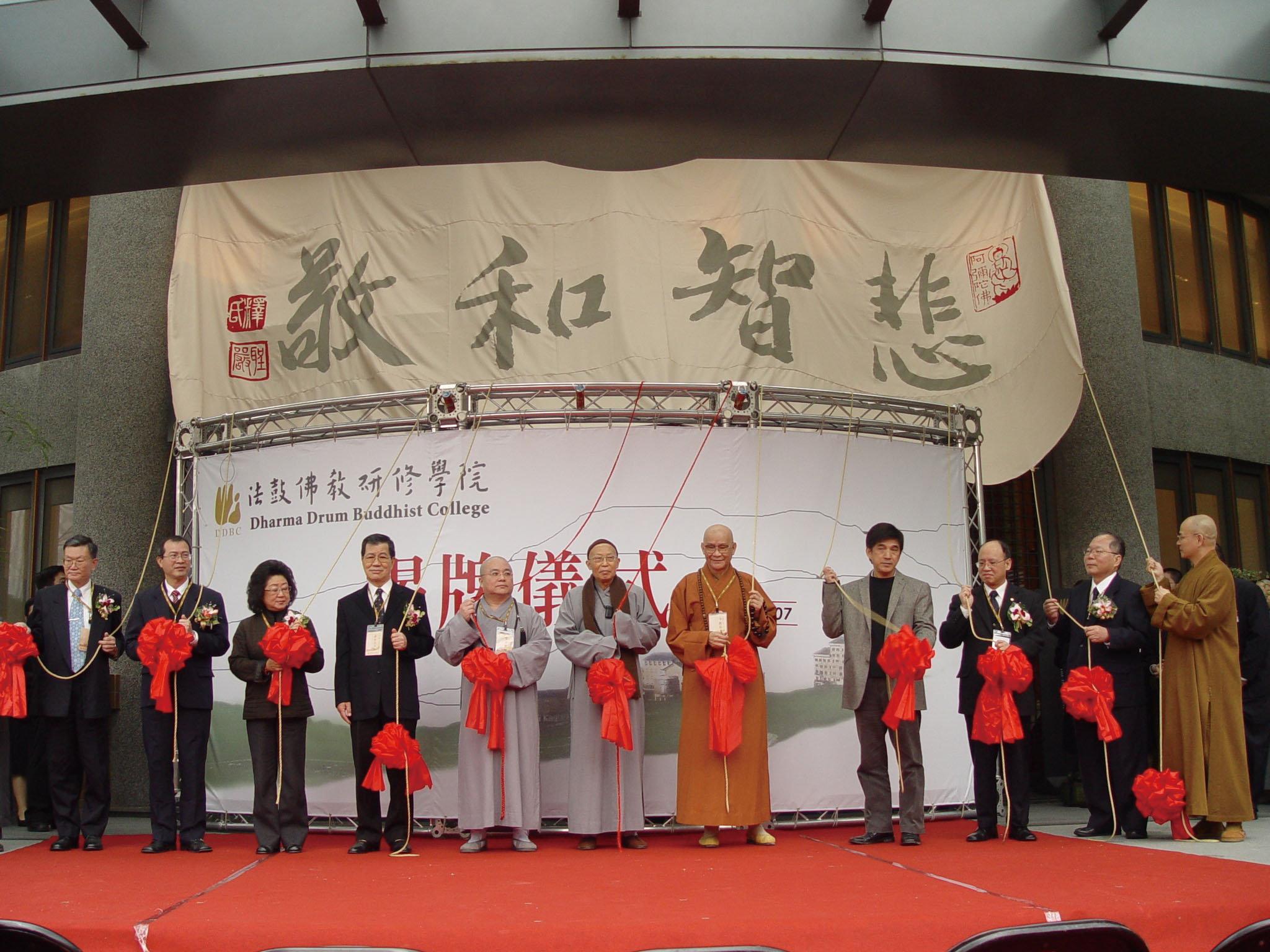
法鼓佛教學院揭牌儀式。
DDBC inauguration, 2007.
過去十年來,佛學網路資訊室與中華電子佛典協會(CBETA)共同推動藏經、佛典電子化與佛學資料庫的建制,不遺餘力。進而,在本所漢傳佛學、印度佛學與西藏佛學三組課程的架構下,增闢佛學資訊學程;此不僅是佛教教育的創舉,更快速帶動佛學研究之交流與資源整合,讓數位科技靈活運用於佛學教育與研究之中。
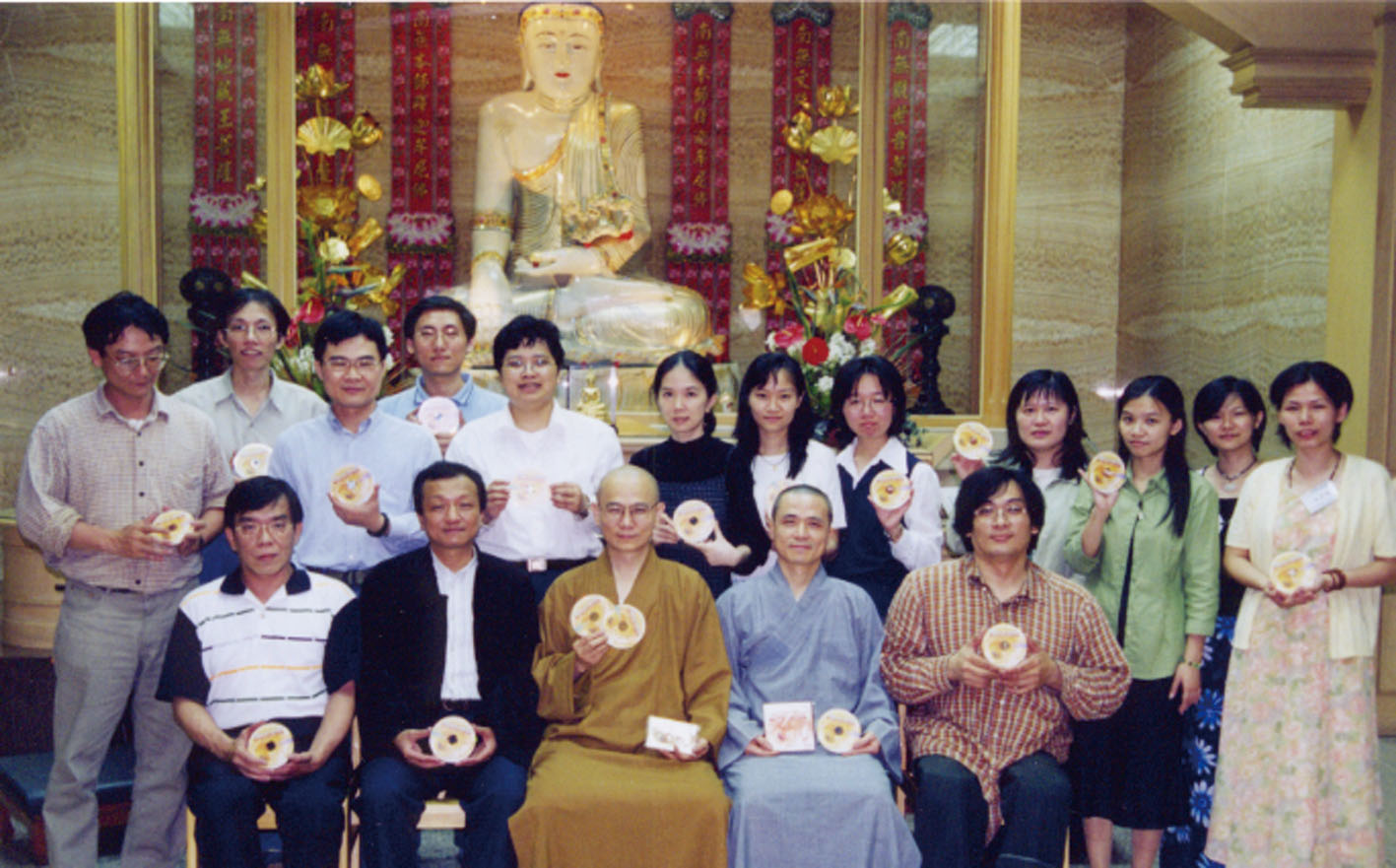
中華電子佛典協會成員展示成果。
Group picture of CBETA staff.
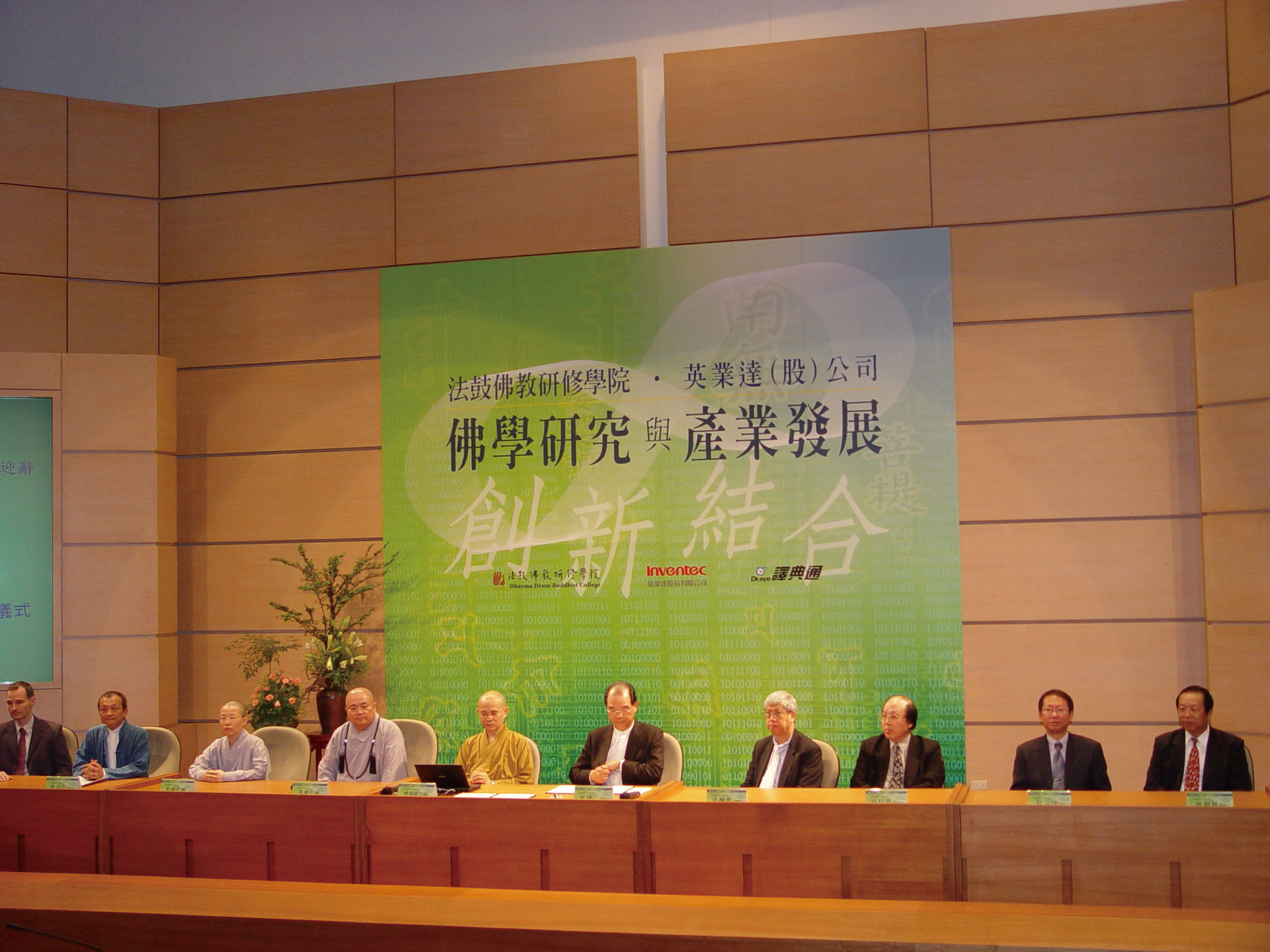
佛學研究與產業發展的創新結合。
Combining Buddhist Studies with Digital Dictionary.
Tilling the Soil, Planting Good Seeds
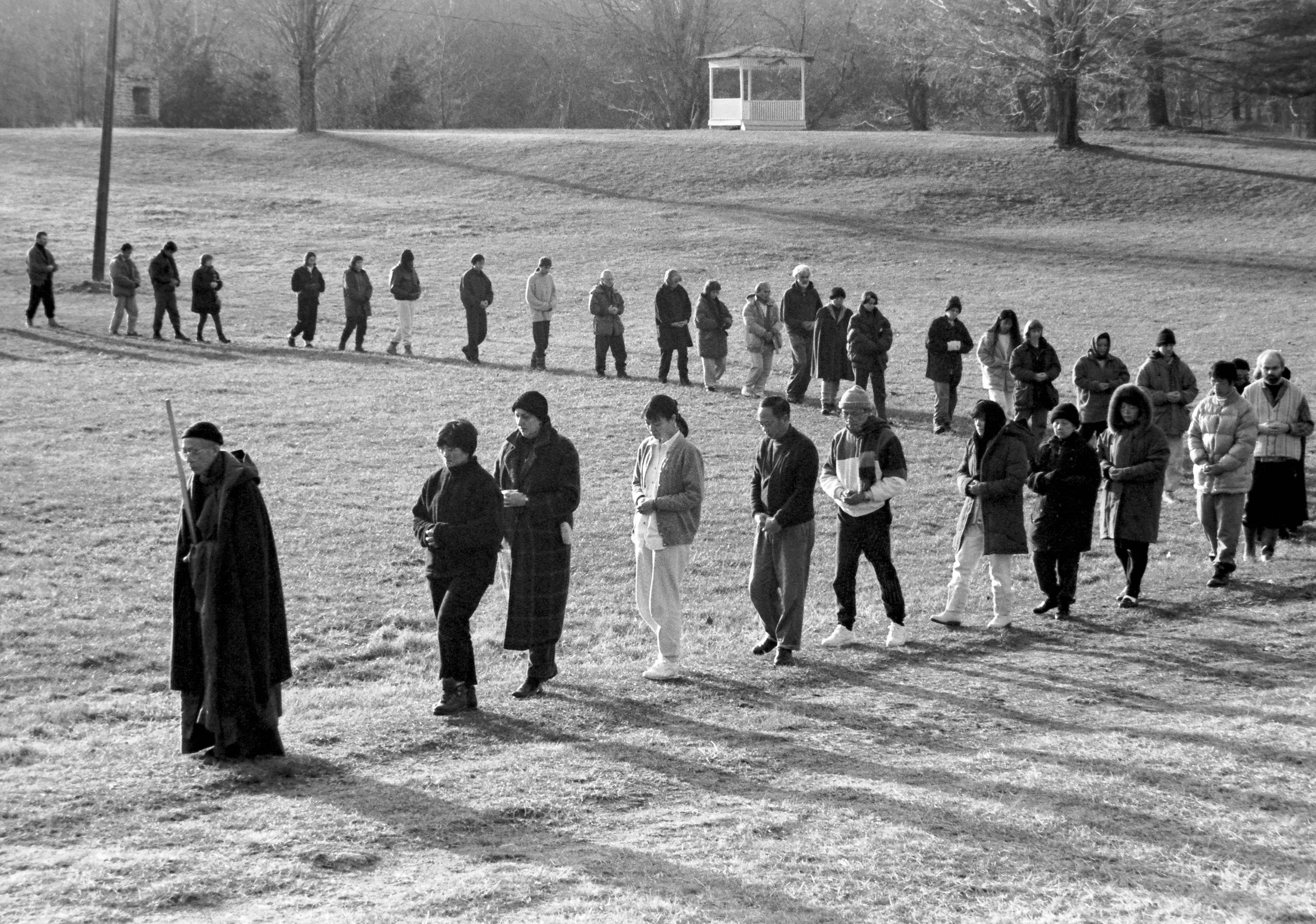
The Chung-Hwa Institute of Buddhist Studies (CHIBS) was established by Venerable Master Sheng Yen in 1985. In 2001, CHIBS relocated to the Dharma Drum Mountain World Center for Buddhist Education located in Jinshan Township, Taiwan. In 2006, CHIBS successfully passed the requirements of the Ministry of Education to establish the first private Buddhist College-Dharma Drum Buddhist College-in Taiwan. In 2007 CHIBS stopped enrolling students, transferring that responsibility to Dharma Drum Buddhist College. Since the passing away of Master Sheng Yen in February 2009, CHIBS has continued to concentrate on being a global advocate for the academic study and research of Chinese Buddhism, thereby fulfilling one of the main concerns of Master Sheng Yen.
Together with Sheng Yen Education Foundation, CHIBS now employs its full range of talent and resources to encourage research and propagation of Chinese Buddhism both at home and abroad. One very successful application of CHIBS’s resources has been a co-operative publishing venture with Columbia University in New York City, whereby CHIBS locates and finances excellent research projects on aspects of Chinese Buddhism from the Sung dynasty to the Republican Era, and assists Columbia University and the Columbia University Press in their publication. As well, research works in Chinese will be published by Dharma Drum Publishing Corp. CHIBS also helps universities worldwide with financing for conferences and workshops dealing with aspects of Chinese Buddhism. In addition CHIBS provides exchange students and scholars with assistance in pursuing their researches with Chinese Buddhism. Finally, CHIBS continues publish its internationally-renowned Chung-Hwa Buddhist Journal in English and will re-introduce to readers the multi-lingual journal Chung-Hwa Buddhist Studies, showcasing the research outcomes of graduate students.
During CHIBS’s years as an educational training institution, its educational structure primarily involved a three-year intensive Buddhist Studies program. Just as with DDBC today, there were three programs in Buddhist Studies-Indian Buddhism, Tibetan Buddhism, and Chinese Buddhism-and one Digital Studies program in Buddhist Informatics. In its Buddhist Studies programs, CHIBS offered thorough training in the main canonical languages of Sanskrit, Pali, classical Buddhist Chinese, and Tibetan. Students studied at least two of these Buddhist canonical languages. Most students also opted for courses in Japanese and English as well. A Master's Thesis was required for graduation. It was permissible to write the thesis in Chinese or English.
A special feature of the Institute was that students had access to international Buddhist Studies professors and research resources. During its three decades of operation as an educational institute, the Institute invited numerous renowned international and domestic scholars to take positions as part-time and full-time researchers and professors. In order to broaden students’ vision, and to make academic exchanges within the international research community, CHIBS invited many foreign scholars to give lectures or hold seminars. In addition, CHIBS established sister relationships with ten famous universities in Asia, America, Europe, Russia, and Mainland China, including the University of Virginia (U.S.A), the University of Saint-Petersburg the State University (Russia), the University of Michigan (U.S.A.), Rissho University (Japan), and others.
CHIBS regularly holds Chung-Hwa International Conferences on Buddhism. The theme of the first international conference was “Buddhist Ethics and Modern Society”; the second, “Traditional Buddhist Precepts and the Modern World”; the third, “The ‘Earthly’ Pure Land and Contemporary society”; the fourth, “The Role of Buddhism in the 21st Century”; and the fifth“Bodhisattva Avalokitesvara and Modern Society”.
One of CHIBS innovative programs was the Chinese-Tibetan Buddhism Cultural Exchange Program, co-sponsored by the Mongolian and Tibetan Affairs Commission and the Buddhist Seminary of Dharma Drum Sangha University. This program ran from 2001 to 2007, and was established with the aim of providing Tibetan monks who were teaching Buddhism in Taiwan with an opportunity to study Chinese language and to offer them exposure to Chinese Culture. At the same time, students from the Institute and the Sangha University were invited to attend the Tibetan monks’ presentations on Vajrayana Buddhism and Tibetan culture. This program proved to be very successful in enhancing a mutual understanding and respect between the Taiwanese and Tibetan students.
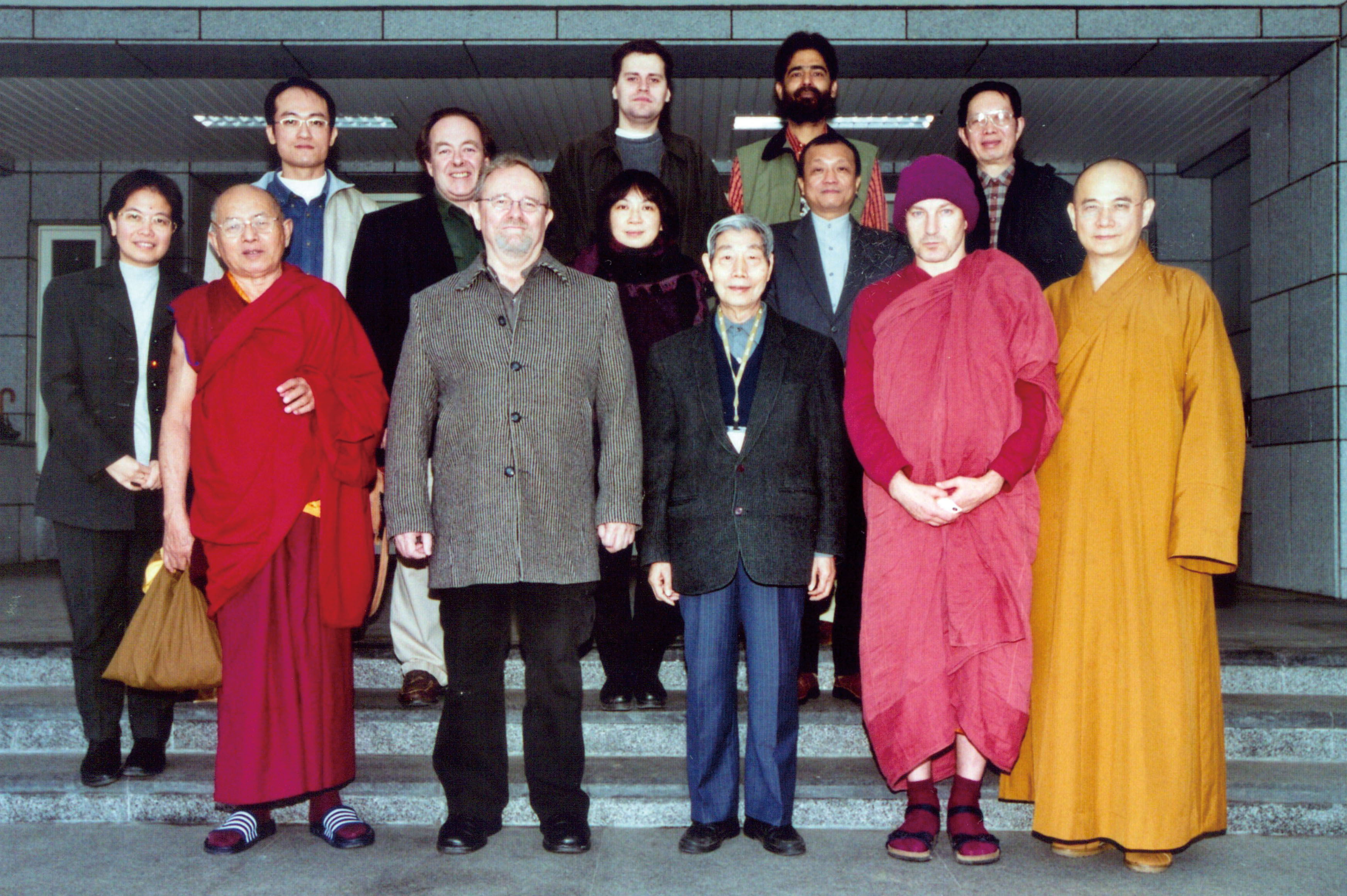
參加國際佛學會議的各國學者們。
A meeting of International Scholars.
Today, CHIBS facilities in the Education and Administration Building co-exist with Dharma Drum Buddhist College. The Education and Administration Building houses an International Conference Hall and Library and Information Center. The International Conference Hall has been built to incorporate state-of-the-art multi-media electronic equipment and is designed to accommodate large scale international academic conferences. The Library, now renamed The Library and Information Center, consists of five floors with a total area of 2,785 square meters. It houses over 50,000 volumes and subscribes to 518 periodicals, making it one of the largest Buddhist Studies collections in Asia. It holds one of the world’s largest collections of canonical editions, more than 50 editions of the Buddhist Canon in various scripts and languages.
Thanks to its advanced research capabilities, CHIBS was able to establish the Buddhist Studies Information Network Center in 1998. The Center helped researchers of Buddhism to effectively access the entire Tripitaka as well as twelve separate collections of scriptures. CHIBS supported the Chinese Buddhist Electronic Text Association (CBETA) in converting the Taisho Tripitaka and the Xuzangjing (Zokuzokyo), as well as numerous other academic research projects, into electronic text formats. In total, over 100 million words have been digitized.











